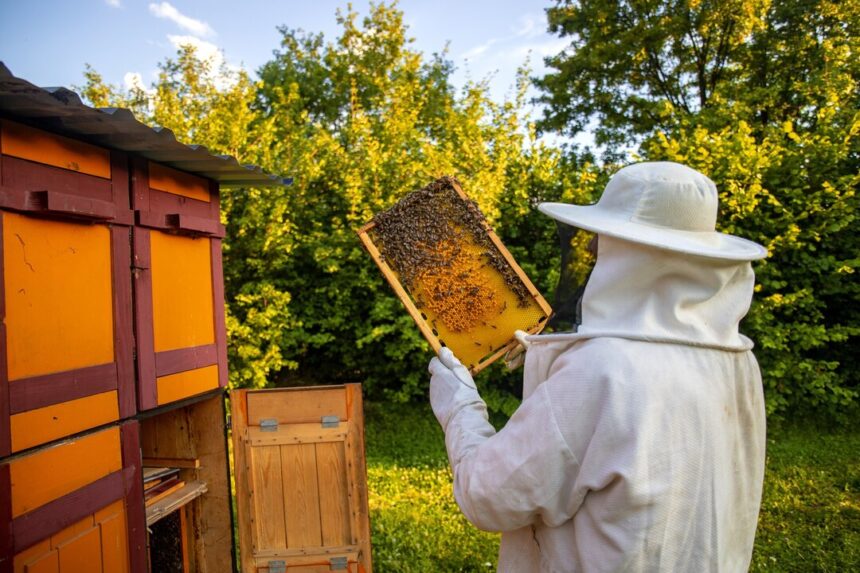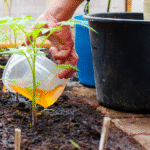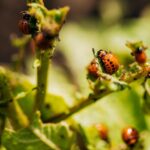Beekeeping, also known as apiculture, is an ancient practice that has gained renewed interest in recent years, particularly in South Africa. With its diverse landscapes, favorable climate, and abundant floral resources, South Africa offers ideal conditions for beekeeping and honey production. As the demand for natural, locally sourced honey continues to rise, beekeeping presents a lucrative opportunity for entrepreneurs and farmers alike. Let’s explore how beekeeping is tapping into South Africa’s honey industry and why it’s becoming increasingly popular:
1. Rich Biodiversity:
South Africa is home to a diverse range of flowering plants, including indigenous flora such as fynbos, succulents, and savanna grasses. This rich biodiversity provides bees with ample nectar and pollen sources, allowing them to thrive and produce high-quality honey.
2. Favorable Climate:
The country’s varied climate, ranging from temperate in the Western Cape to subtropical in KwaZulu-Natal, provides year-round forage for bees. South Africa’s mild winters and long summers create ideal conditions for bee colonies to flourish and produce honey throughout the year.
3. High-Quality Honey:
South African honey is prized for its unique flavors and characteristics, influenced by the diverse floral sources available to bees. From the delicate floral notes of fynbos honey to the rich, dark hues of forest honey, each variety offers a distinct taste experience for consumers.
4. Health Benefits:
Locally sourced honey is valued not only for its delicious taste but also for its numerous health benefits. Raw honey contains antioxidants, enzymes, vitamins, and minerals that support immune health, digestion, and overall well-being. South African consumers are increasingly seeking out pure, unprocessed honey for its natural health properties.
5. Economic Opportunities:
Beekeeping presents lucrative economic opportunities for individuals and communities across South Africa. Small-scale beekeepers can generate additional income by selling honey, beeswax, pollen, and other hive products at local markets or directly to consumers. Larger commercial operations can tap into domestic and international markets, contributing to job creation and economic development.
6. Environmental Conservation:
Beekeeping plays a vital role in environmental conservation by supporting pollination and biodiversity conservation efforts. Bees are essential pollinators for many crops and wild plants, contributing to agricultural productivity and ecosystem resilience. By promoting beekeeping practices, South Africa can enhance its natural ecosystems and promote sustainable agriculture.
7. Sustainable Farming:
Beekeeping is a sustainable farming practice that requires minimal land and resources compared to other agricultural activities. Bee colonies can be managed in diverse landscapes, including urban areas, natural reserves, and agricultural lands, making it accessible to farmers of all scales.
8. Training and Support:
To support the growth of the beekeeping industry, various organizations and institutions in South Africa offer training programs, workshops, and technical assistance to aspiring beekeepers. These initiatives cover topics such as hive management, bee health, honey harvesting, and marketing, empowering individuals to start and manage successful beekeeping enterprises.
9. Value-Added Products:
In addition to honey, beekeepers can diversify their product offerings by producing value-added items such as beeswax candles, propolis tinctures, royal jelly supplements, and honey-based skincare products. These value-added products cater to niche markets and provide additional revenue streams for beekeeping businesses.
10. Regulatory Compliance:
Beekeepers in South Africa are subject to regulations and standards set by the Department of Agriculture, Forestry, and Fisheries (DAFF). These regulations govern aspects such as hive registration, disease control, labeling requirements, and food safety standards to ensure the quality and safety of honey products for consumers.
Beekeeping represents a thriving sector within South Africa’s agricultural landscape, offering numerous opportunities for economic growth, environmental stewardship, and community development. As consumer demand for natural, sustainably produced honey continues to rise, beekeepers play a crucial role in meeting this demand while contributing to the conservation of South Africa’s rich biodiversity. By tapping into the honey industry, individuals and communities can harness the benefits of beekeeping while promoting sustainable livelihoods and protecting the planet for future generations.







